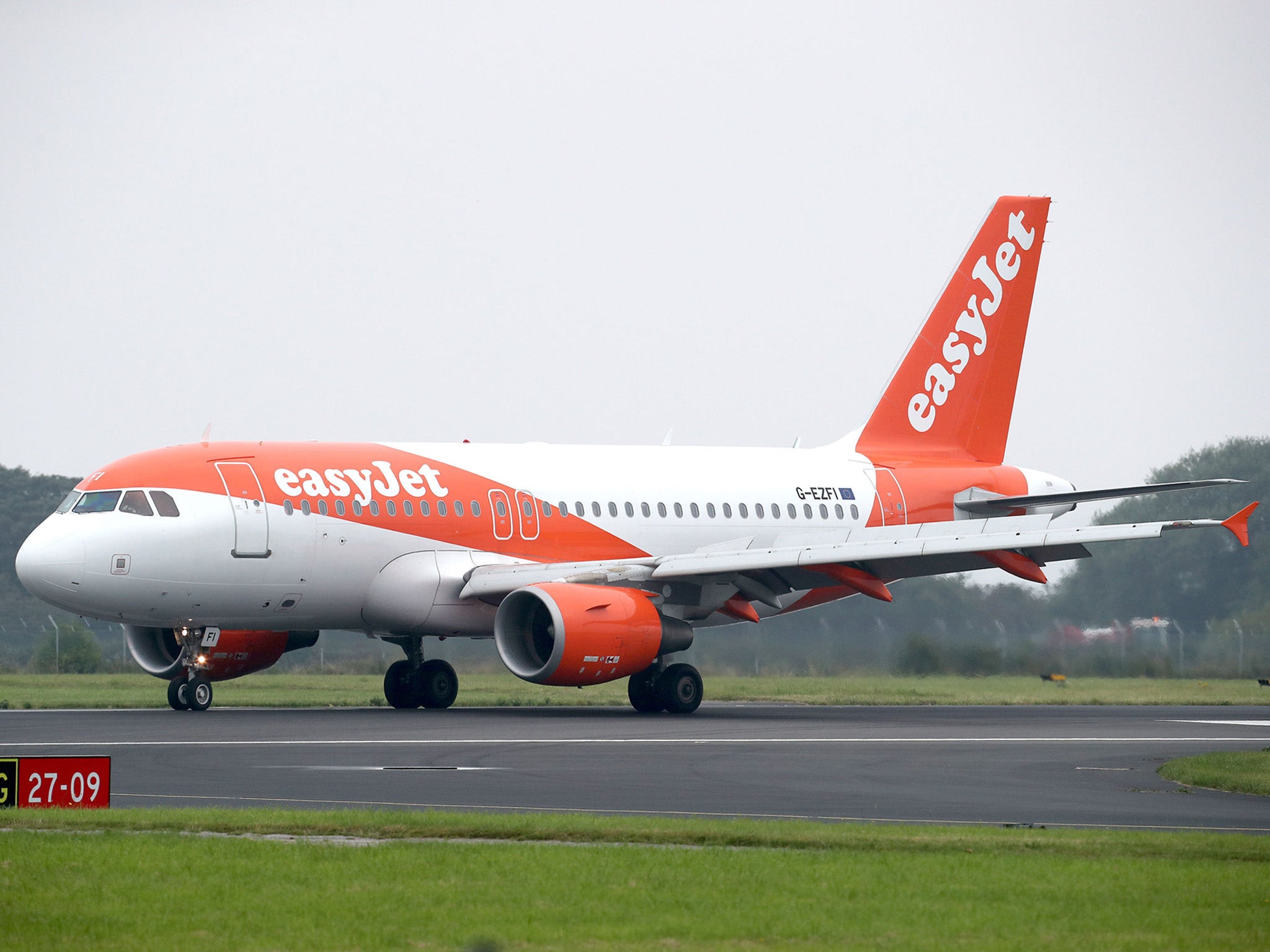Easyjet fined £50,000 by French court after refusing to let disabled passenger board flight
Company has faced similar cases in the past

Your support helps us to tell the story
From reproductive rights to climate change to Big Tech, The Independent is on the ground when the story is developing. Whether it's investigating the financials of Elon Musk's pro-Trump PAC or producing our latest documentary, 'The A Word', which shines a light on the American women fighting for reproductive rights, we know how important it is to parse out the facts from the messaging.
At such a critical moment in US history, we need reporters on the ground. Your donation allows us to keep sending journalists to speak to both sides of the story.
The Independent is trusted by Americans across the entire political spectrum. And unlike many other quality news outlets, we choose not to lock Americans out of our reporting and analysis with paywalls. We believe quality journalism should be available to everyone, paid for by those who can afford it.
Your support makes all the difference.Budget airliner Easyjet has been fined more than £50,000 by a French court after it ruled the carrier discriminated against a disabled passenger.
Easyjet staff refused access to Joseph Etcheveste, 55, who is paralysed, to a flight in Biarritz in July 2010, citing “security” reasons.
Staff also said Mr Etcheveste could not board because he was “unaccompanied”.
According to the Guardian, his lawyer, Anne-Marie Mendiboure, said: “EasyJet refused to let my client board because it deemed there were security problems. They still have not been able to explain what they were.”
The court in Bayonne. south west France, ruled in Mr Etcheveste's favour and fined the company €60,000 (£52,000).
Maud Marian, lawyer for Easyjet, told AFP news agency she was not surprised at the court’s decision and that the carrier was unlikely to appeal. She added that the company “never intended to discriminate against the plaintiff”.
A spokesperson for the company told The Independent: “EasyJet accepts the tribunal decision and will not appeal this decision. EasyJet never intended to discriminate against Mr Etcheveste or any other passenger of reduced mobility. This case dates from July 2010 and since then EasyJet has reviewed all stages in our passengers’ journey with us to ensure we make it as easy as we can for all.
“In 2012 EasyJet created an independent committee of European experts (ESAAG – the EasyJet Special Assistance Advisory Group) to provide guidance and advice to the airline.
“EasyJet flies every day more than 1000 passengers requiring special assistance and invests in training its staff to provide assistance for all needs. This includes offering a dedicated special assistance support service in order to identify passenger needs and enhance the quality of their experience at the airport and on-board EasyJet’s aircraft.
“As a result of all this, our research shows that 87% of EasyJet passengers who require special assistance are satisfied with the services of the airline and that 98% said they would fly with us again – both are at a higher level than EasyJet passengers as a whole.”
Easyjet has previously faced numerous lawsuits by wheelchair users for disability discrimination.
In December 2016, pensioner Dorothy Rostron – who was terminally ill and had a chronic lung condition – was allegedly barred by Easyjet from returning to the UK from a final holiday in Malaga.
Ms Rostron claimed she and her family were removed from their flight because her oxygen canisters – which she needed to breathe – were deemed a “security issue”, the Mirror reported.
The family were left stranded until another airline allowed them to fly back to Manchester.
Join our commenting forum
Join thought-provoking conversations, follow other Independent readers and see their replies
Comments